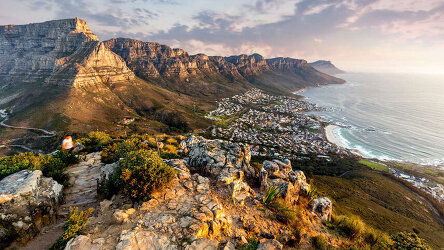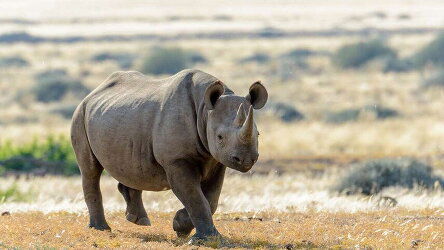Overview
Itinerary
Our tour starts today in Dakar, the seaside capital of Senegal and the gateway to West Africa. With its bustling energy, friendly locals and unique culture that encapsulates centuries of history, Dakar has an unexpected charm that instantly draws you in. Steeped in history, the metropolis has plenty on offer, from mosques and museums to a glittering nightlife scene and plenty of nearby beaches.
For those arriving on time, our tour leader plans to meet you in the hotel reception at 6pm and for those that wish, there is the chance to go out for dinner. There are no activities planned today, so you're free to arrive in Dakar at any time. If you'd like an airport transfer today, you'll need to arrive into Blaise Diagne International Airport (DSS), which is around a one-hour drive from the city centre.
Our welcome meeting will take place on the morning of day two at 8.30am. If you have free time on arrival, you might like to take in the atmosphere at one of the markets. Stay: Savana Hotel (Comfortable)
After breakfast this morning, we'll meet with our tour leader for a welcome meeting. Then, we'll head to the port to catch the ferry to Isle de Goree, a small peaceful, traffic-free island. The crossing takes around 30 minutes, and on arrival, we'll drop off our luggage before taking a walking tour.
A busy trading centre during the 18th and 19th centuries, the island is now a UNESCO World Heritage Site. With its charming colonial-style houses, wrought iron balconies and narrow streets filled with brightly coloured bougainvillaea, you could kid yourself you've been transported back in time as we explore. We'll visit Le Castel, a castle situated on a rocky plateau, as well as the old Slave House, originally built in 1786.
This evening is free to relax. Stay: Hotel Madou (Comfortable) (B)
This morning, we'll catch the ferry back to the mainland and then drive to Lac Rose - the Pink Lake. This large, shallow lagoon is extremely salty and is also renowned for its pink tinge, caused by the high concentrations of minerals in the water, it should be noted however that the pink colour does fluctuate with amount of mineral content in the lake. We'll have a 30-minute walk around the lake followed by free time for a lunch break. The pink hues change during the day and from season to season, but no matter the time of year the locals can be seen out on the lake working hard to collect salt into baskets on their small boats.
This afternoon, we'll drive north for around four-and-a-half hours to St. Louis. Once the French capital of West Africa, St Louis is a UNESCO World Heritage Site - it's a colourful, charming city, moving to the rhythm of the local jazz musicians. We have the evening free to explore here. For dinner, you might like to try the local dish, Thieboudienne, a mix of fish, tomato, rice and vegetable. Stay: Hotel Sindone (Comfortable) (B)
This morning, we'll have an early start to visit Djoudj National Park, regarded as one of the most important bird reserves in the world. This national park provides the first major water source for migratory birds after their long and gruelling flight over the Sahara Desert.
We'll travel by motorised boat along the complex network of channels which lead off the Senegal River. The bird count reaches millions, some species are prevalent such as pelicans - there are as many as 15,000 in the park. We might see them performing an amazing display of synchronised diving for fish and will see a breeding colony. Around three million birds pass through the park annually which includes 400 different species - including herons, white-breasted cormorants, spoonbills, jacanas, Egyptian geese, West African fish eagles and flamingos to name but a few. You might also spot crocodiles, wild hogs, monitor lizards and water pythons.
Early this afternoon, we'll return back to St. Louis in time for lunch and some free time before exploring this marvellous old town by calesh (horse-drawn carriage) with a local guide. Full of 19th-century French colonial buildings, this was the first French settlement in Africa and the Headquarters of Senegambia (the term used to describe the whole region). By the late 18th century, St Louis was a busy port and trading centre and was inscribed as a UNESCO World Heritage site in 2000. Stay: Hotel Sindone (Comfortable) (B)
Today we'll start early for our visit to the Langue de Barbarie National Park, located on a thin sandspit in the estuary of the Senegal River, and home to water birds such as flamingos, pelicans, cormorants, herons, egrets and ducks. During the months from November to April, the park also fills with many more migratory birds from Europe.
After a morning of exploration, the afternoon is free to relax or wander further around the town. The streets of St. Louis are narrow, dusty and easy to navigate, lined with crumbling old French-style villas. Stay: Hotel Sindone (Comfortable) (B)
Early this morning, we'll begin our journey to The Gambia and most of the day will be spent on the bus travelling. We'll break up the first leg of this journey with a visit to an astounding mosque in Touba, the sacred focus of the Mouride Islamic Brotherhood. Their founder Amadou Bamba, Senegal's most famous and influential 'marabout' (holy man), is buried here and pilgrims visit the town all year round, and as we pass through on a Friday, the Mosque will be busy with worshippers.
Continuing through the town of Kaolack, we'll enter The Gambia and head east following the route of the river towards Georgetown which was an important administrative centre during the colonial period.
Our accommodation this evening is a simple riverside camp made up of simple rondavels with basic ensuite facilities. There is no mains electricity but we'll have limited power from solar-charged panels. There is also no hot water, however, the fantastic location is well worth the trade-off as we get to fall asleep to the sounds of monkeys and birds in the nature that surrounds us. Stay: Laminkoto Camp (Simple) (B/D)
The Gambia River flows along the entire length of the country for 483 kilometres/300 miles from east to west into the Atlantic Ocean and the banks of the river have been inhabited since 2000 BC. We'll spend the next two days on this mighty waterway, cruising downstream in a converted groundnut boat, passing tropical forest, bamboo groves, rice paddies and mangrove swamps. Amongst the varied fauna present in this area are monkeys, hippos, crocodiles and of course a great number of bird species.
Along the way today, we'll visit the Wassu Stone Circles by bush taxi. There are several circles each consisting of about 10 to 24, reddish-brown stones between 1 and 2.5 metres/3.2 and 8.2 feet high and weighing several tons. These were once burial sites dating back to 500 to 1000 AD, however very little is known about the people who were buried here and the stones still present a mystery to archaeologists.
We'll spend one overnight on board a motor cruiser. Facilities on board are very simple with a Western-style toilet, a small kitchen and a bar. At night, we'll sleep in a communal setting on the upper deck on mattresses, and the daytime can be spent relaxing on the upper deck in the sun or on the lower deck with seating in the shade. Stay: Gambia Motorcruiser (Simple) (B/L/D)
This morning, we'll continue our gentle cruise downstream, with time to take in the flora and wildlife along the riverbanks. The crew will put together lunch on the boat before arriving in the small settlement of Tendaba on the Gambia's south bank in the late afternoon.
On arrival, we'll leave our boat and drive to a lodge on the banks of a tributary of the Gambia River at Bintang Bolong and check in to our riverfront accommodation, home for the next two nights. The next couple of days will be a break from the hustle and bustle of normal life, as our accommodation is set on the water's edge, it's a great chance to explore the natural surroundings spotting the resident birdlife from the restaurant terrace. Due to the camp's rural setting electricity and hot water can be very limited and outages may occur. Stay: Bintang Bolong Lodge (Comfortable) (B/L/D)
We'll spend a full day in the river basin around Bintang Bolong. The lodge is located in the middle of a mangrove forest which offers fantastic wildlife viewing opportunities, in particular for those with a keen interest in birdwatching. The rich habitat supports a huge range of birds, including kingfishers, egrets parrots, hornbills, lapwings and herons in abundance.
Birdlife is at its most active in the mornings and evenings, we'll start the day with an early morning boat trip to spot wildlife on the banks of the river including three species of monkeys, and at low tide, crocodiles and lizards. The middle of the day is left free to take shelter from the heat. In the evening, apes and vultures inhabit the overwhelming Baobab trees, and after dusk, great colonies of fruit bats can be seen swarming into the night. Stay: Bintang Bolong Lodge (Comfortable) (B/L/D)
This morning, we'll begin our journey back into Senegal. We'll drive for around three hours to cross over the River Gambia before continuing to the land border to cross into Senegal at Karang. Once we've crossed, we'll then continue to Toubakouta, our home for tonight. Today's journey will take around six hours in total but could be longer depending on how long it takes to cross the border.
The afternoon is at your leisure to relax, have a dip in the pool or explore the local area. Our accommodation is rondavels set within the lush grounds of the hotel on the riverbank. This evening, there will be the opportunity to join other guests on an optional boat excursion. Stay: Keur Saloum Hotel (Comfortable) (B/L/D)
This morning, we'll cruise north along the Sine-Saloum Delta by motorised fibre boat for approximately four to five hours. We'll weave our way through the maze of wide channels, past mangroves, open forests, sand islands and villages built on islands constructed with oyster shells. Along the way, we might be lucky enough to spot pelicans and flamingos.
After a packed lunch onboard, we'll arrive in Ndangane, our destination for tonight where the afternoon will be free to absorb the slower pace of life. Ndangane is a small fishing village often used as a base along the Delta, the beach is lined with traditional pirogues and along the main stretch of road, there is a small number of bars and craft shops. Stay: Le Pelican Hotel (Comfortable) (B/L/D)
Today, we'll depart Saloum Delta National Park to begin our journey back to Dakar. Our first stop, just a short time away is to see a giant Baobab tree. Baobab trees are the national symbol of Senegal, some trees dating back 6,000 years and can only be found in a few places around the world. We'll have a short stop here before we continue.
Our next stop will be for a guided walking tour Fadiout Islands. This unusual destination is composed of oysters and clam shells, and the inhabitants are both Muslim and Christian who all live together peacefully. The Christian and Muslim cemeteries are built on a huge ancient shell mound and our guide will take us around to help us understand this very unique community.
Later this afternoon, we'll continue our return journey to Dakar, arriving in time for dinner. Stay: Savana Hotel (Comfortable) (B)
The trip ends after breakfast at our hotel in Dakar.
There are no activities planned today, so you're free to depart from Dakar at any time. If your flight is departing later in the day, luggage storage facilities are available at our hotel. If you'd like an airport transfer today, you'll need to depart from Blaise Diagne International Airport (DSS), which is around a one-hour drive from the city centre. (B)
Our tour starts today in Dakar, the seaside capital of Senegal and the gateway to West Africa. With its bustling energy, friendly locals and unique culture that encapsulates centuries of history, Dakar has an unexpected charm that instantly draws you in. Steeped in history, the metropolis has plenty on offer, from mosques and museums to a glittering nightlife scene and plenty of nearby beaches.
For those arriving on time, our tour leader plans to meet you in the hotel reception at 6pm and for those that wish, there is the chance to go out for dinner. There are no activities planned today, so you're free to arrive in Dakar at any time. If you'd like an airport transfer today, you'll need to arrive into Blaise Diagne International Airport (DSS), which is around a one-hour drive from the city centre.
Our welcome meeting will take place on the morning of day two at 8.30am. If you have free time on arrival, you might like to take in the atmosphere at one of the markets. Stay: Savana Hotel (Comfortable)
After breakfast this morning, we'll meet with our tour leader for a welcome meeting. Then, we'll head to the port to catch the ferry to Isle de Goree, a small peaceful, traffic-free island. The crossing takes around 30 minutes, and on arrival, we'll drop off our luggage before taking a walking tour.
A busy trading centre during the 18th and 19th centuries, the island is now a UNESCO World Heritage Site. With its charming colonial-style houses, wrought iron balconies and narrow streets filled with brightly coloured bougainvillaea, you could kid yourself you've been transported back in time as we explore. We'll visit Le Castel, a castle situated on a rocky plateau, as well as the old Slave House, originally built in 1786.
This evening is free to relax. Stay: Hotel Madou (Comfortable) (B)
This morning, we'll catch the ferry back to the mainland and then drive to Lac Rose - the Pink Lake. This large, shallow lagoon is extremely salty and is also renowned for its pink tinge, caused by the high concentrations of minerals in the water, it should be noted however that the pink colour does fluctuate with amount of mineral content in the lake.. We'll have a 30-minute walk around the lake followed by free time for a lunch break. The pink hues change during the day and from season to season, but no matter the time of year the locals can be seen out on the lake working hard to collect salt into baskets on their small boats.
This afternoon, we'll drive north for around four-and-a-half hours to St. Louis. Once the French capital of West Africa, St Louis is a UNESCO World Heritage Site - it's a colourful, charming city, moving to the rhythm of the local jazz musicians. We have the evening free to explore here. For dinner, you might like to try the local dish, Thieboudienne, a mix of fish, tomato, rice and vegetable. Stay: Hotel Sindone (Comfortable) (B)
This morning, we'll have an early start to visit Djoudj National Park, regarded as one of the most important bird reserves in the world. This national park provides the first major water source for migratory birds after their long and gruelling flight over the Sahara Desert.
We'll travel by motorised boat along the complex network of channels which lead off the Senegal River. The bird count reaches millions, some species are prevalent such as pelicans - there are as many as 15,000 in the park. We might see them performing an amazing display of synchronised diving for fish and will see a breeding colony. Around three million birds pass through the park annually which includes 400 different species - including herons, white-breasted cormorants, spoonbills, jacanas, Egyptian geese, West African fish eagles and flamingos to name but a few. You might also spot crocodiles, wild hogs, monitor lizards and water pythons.
Early this afternoon, we'll return back to St. Louis in time for lunch and some free time before exploring this marvellous old town by calesh (horse-drawn carriage) with a local guide. Full of 19th-century French colonial buildings, this was the first French settlement in Africa and the Headquarters of Senegambia (the term used to describe the whole region). By the late 18th century, St Louis was a busy port and trading centre and was inscribed as a UNESCO World Heritage site in 2000. Stay: Hotel Sindone (Comfortable) (B)
Today we'll start early for our visit to the Langue de Barbarie National Park, located on a thin sandspit in the estuary of the Senegal River, and home to water birds such as flamingos, pelicans, cormorants, herons, egrets and ducks. During the months from November to April, the park also fills with many more migratory birds from Europe.
After a morning of exploration, the afternoon is free to relax or wander further around the town. The streets of St. Louis are narrow, dusty and easy to navigate, lined with crumbling old French-style villas. Stay: Hotel Sindone (Comfortable) (B)
Early this morning, we'll begin our journey to The Gambia and most of the day will be spent on the bus travelling. We'll break up the first leg of this journey with a visit to an astounding mosque in Touba, the sacred focus of the Mouride Islamic Brotherhood. Their founder Amadou Bamba, Senegal's most famous and influential 'marabout' (holy man), is buried here and pilgrims visit the town all year round, and as we pass through on a Friday, the Mosque will be busy with worshippers.
Continuing through the town of Kaolack, we'll enter The Gambia and head east following the route of the river towards Georgetown which was an important administrative centre during the colonial period.
Our accommodation this evening is a simple riverside camp made up of simple rondavels with basic ensuite facilities. There is no mains electricity but we'll have limited power from solar-charged panels. There is also no hot water, however, the fantastic location is well worth the trade-off as we get to fall asleep to the sounds of monkeys and birds in the nature that surrounds us. Stay: Laminkoto Camp (Simple) (B/D)
The Gambia River flows along the entire length of the country for 483 kilometres/300 miles from east to west into the Atlantic Ocean and the banks of the river have been inhabited since 2000 BC. We'll spend the next two days on this mighty waterway, cruising downstream in a converted groundnut boat, passing tropical forest, bamboo groves, rice paddies and mangrove swamps. Amongst the varied fauna present in this area are monkeys, hippos, crocodiles and of course a great number of bird species.
Along the way today, we'll visit the Wassu Stone Circles by bush taxi. There are several circles each consisting of about 10 to 24, reddish-brown stones between 1 and 2.5 metres/3.2 and 8.2 feet high and weighing several tons. These were once burial sites dating back to 500 to 1000 AD, however very little is known about the people who were buried here and the stones still present a mystery to archaeologists.
We'll spend one overnight on board a motor cruiser. Facilities on board are very simple with a Western-style toilet, a small kitchen and a bar. At night, we'll sleep in a communal setting on the upper deck on mattresses, and the daytime can be spent relaxing on the upper deck in the sun or on the lower deck with seating in the shade. Stay: Gambia Motorcruiser (Simple) (B/L/D)
This morning, we'll continue our gentle cruise downstream, with time to take in the flora and wildlife along the riverbanks. The crew will put together lunch on the boat before arriving in the small settlement of Tendaba on the Gambia's south bank in the late afternoon.
On arrival, we'll leave our boat and drive to a lodge on the banks of a tributary of the Gambia River at Bintang Bolong and check in to our riverfront accommodation, home for the next two nights. The next couple of days will be a break from the hustle and bustle of normal life, as our accommodation is set on the water's edge, it's a great chance to explore the natural surroundings spotting the resident birdlife from the restaurant terrace. Due to the camp's rural setting electricity and hot water can be very limited and outages may occur. Stay: Bintang Bolong Lodge (Comfortable) (B/L/D)
We'll spend a full day in the river basin around Bintang Bolong. The lodge is located in the middle of a mangrove forest which offers fantastic wildlife viewing opportunities, in particular for those with a keen interest in birdwatching. The rich habitat supports a huge range of birds, including kingfishers, egrets parrots, hornbills, lapwings and herons in abundance.
Birdlife is at its most active in the mornings and evenings, we'll start the day with an early morning boat trip to spot wildlife on the banks of the river including three species of monkeys, and at low tide, crocodiles and lizards. The middle of the day is left free to take shelter from the heat. In the evening, apes and vultures inhabit the overwhelming Baobab trees, and after dusk, great colonies of fruit bats can be seen swarming into the night. Stay: Bintang Bolong Lodge (Comfortable) (B/L/D)
This morning, we'll begin our journey back into Senegal. We'll drive for around three hours to cross over the River Gambia before continuing to the land border to cross into Senegal at Karang. Once we've crossed, we'll then continue to Toubakouta, our home for tonight. Today's journey will take around six hours in total but could be longer depending on how long it takes to cross the border.
The afternoon is at your leisure to relax, have a dip in the pool or explore the local area. Our accommodation is rondavels set within the lush grounds of the hotel on the riverbank. This evening, there will be the opportunity to join other guests on an optional boat excursion. Stay: Keur Saloum Hotel (Comfortable) (B/L/D)
This morning, we'll cruise north along the Sine-Saloum Delta by motorised fibre boat for approximately four to five hours. We'll weave our way through the maze of wide channels, past mangroves, open forests, sand islands and villages built on islands constructed with oyster shells. Along the way, we might be lucky enough to spot pelicans and flamingos.
After a packed lunch onboard, we'll arrive in Ndangane, our destination for tonight where the afternoon will be free to absorb the slower pace of life. Ndangane is a small fishing village often used as a base along the Delta, the beach is lined with traditional pirogues and along the main stretch of road, there is a small number of bars and craft shops. Stay: Le Pelican Hotel (Comfortable) (B/L/D)
Today, we'll depart Saloum Delta National Park to begin our journey back to Dakar. Our first stop, just a short time away is to see a giant Baobab tree. Baobab trees are the national symbol of Senegal, some trees dating back 6,000 years and can only be found in a few places around the world. We'll have a short stop here before we continue.
Our next stop will be for a guided walking tour Fadiout Islands. This unusual destination is composed of oysters and clam shells, and the inhabitants are both Muslim and Christian who all live together peacefully. The Christian and Muslim cemeteries are built on a huge ancient shell mound and our guide will take us around to help us understand this very unique community.
Later this afternoon, we'll continue our return journey to Dakar, arriving in time for dinner. Stay: Savana Hotel (Comfortable) (B)
The trip ends after breakfast at our hotel in Dakar.
There are no activities planned today, so you're free to depart from Dakar at any time. If your flight is departing later in the day, luggage storage facilities are available at our hotel. If you'd like an airport transfer today, you'll need to depart from Blaise Diagne International Airport (DSS), which is around a one-hour drive from the city centre. (B)
Trip Inclusions
- Discover West Africa's fantastic bird and wildlife in Senegal and The Gambia
- Cruise the waterways of the great Gambia River and stay at a tranquil river lodge
- Experience old Senegal and immersive yourself in its rich colonial heritage
- Moderate pace tours are ideal if you want a holiday which combines exciting activities and experiences with plenty of time to relax and unwind. Typically you'll be active and busy for part of the day but then also have time to rest and recharge your batteries.
- Accommodation, itinerary and inclusions subject to change.
- Price is for land, cruise and internal flights as specified. Flights not specified are not included
- Discover West Africa's fantastic bird and wildlife in Senegal and The Gambia
- Cruise the waterways of the great Gambia River and stay at a tranquil river lodge
- Experience old Senegal and immersive yourself in its rich colonial heritage
- Moderate pace tours are ideal if you want a holiday which combines exciting activities and experiences with plenty of time to relax and unwind. Typically you'll be active and busy for part of the day but then also have time to rest and recharge your batteries.
- Accommodation, itinerary and inclusions subject to change.
- Price is for land, cruise and internal flights as specified. Flights not specified are not included
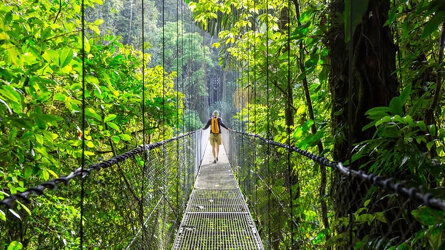
Launching in 1981, Explore offer trips from over 130 countries - from classic small group tours. Read more
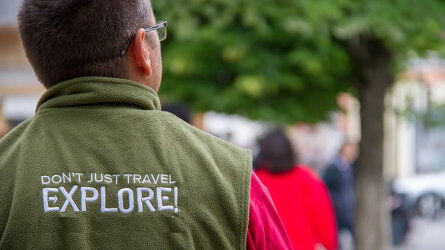
Explore's leaders are more than just your typical guide. They're your local expert are are passionate about sharing their expertise with you. Read more
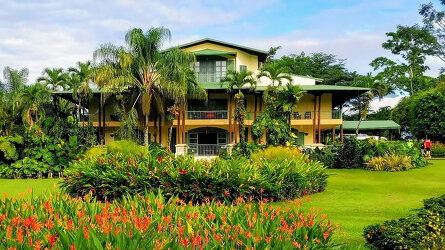
The places Explore stay are every bit as important as the sights they visit and the things you do. Read more

Launching in 1981, Explore offer trips from over 130 countries - from classic small group tours. Read more

Explore's leaders are more than just your typical guide. They're your local expert are are passionate about sharing their expertise with you. Read more

The places Explore stay are every bit as important as the sights they visit and the things you do. Read more
Trip Reviews (2) Most Recent 'Senegal & The Gambia' Reviews
Brochure
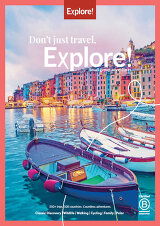
Explore Small Group Adventures (2025-26)
Brochure

Explore Small Group Adventures (2025-26)
Availability
 USD
USD
A definite departure means minimum numbers have been reached for this departure to operate. Your Global Journeys Travel Advisor will check the availability of your departure date when you enquire. Additional savings may apply. We guarantee the lowest price in USA. T&C’s apply.
Tour & cruises prices are per person. Prices shown have savings applied, are subject to availability and may be withdrawn at any time without notice. Pricing and trip details are correct at this point in time, however are subject to confirmation at the time of booking and are subject to change by Explore. For cruise itineraries, cabin images are sourced from Explore. These should be treated as indicative only. Cabin inclusions, upholsteries and room layout may differ to the image(s) shown depending on the ship selected and your sailing dates.






